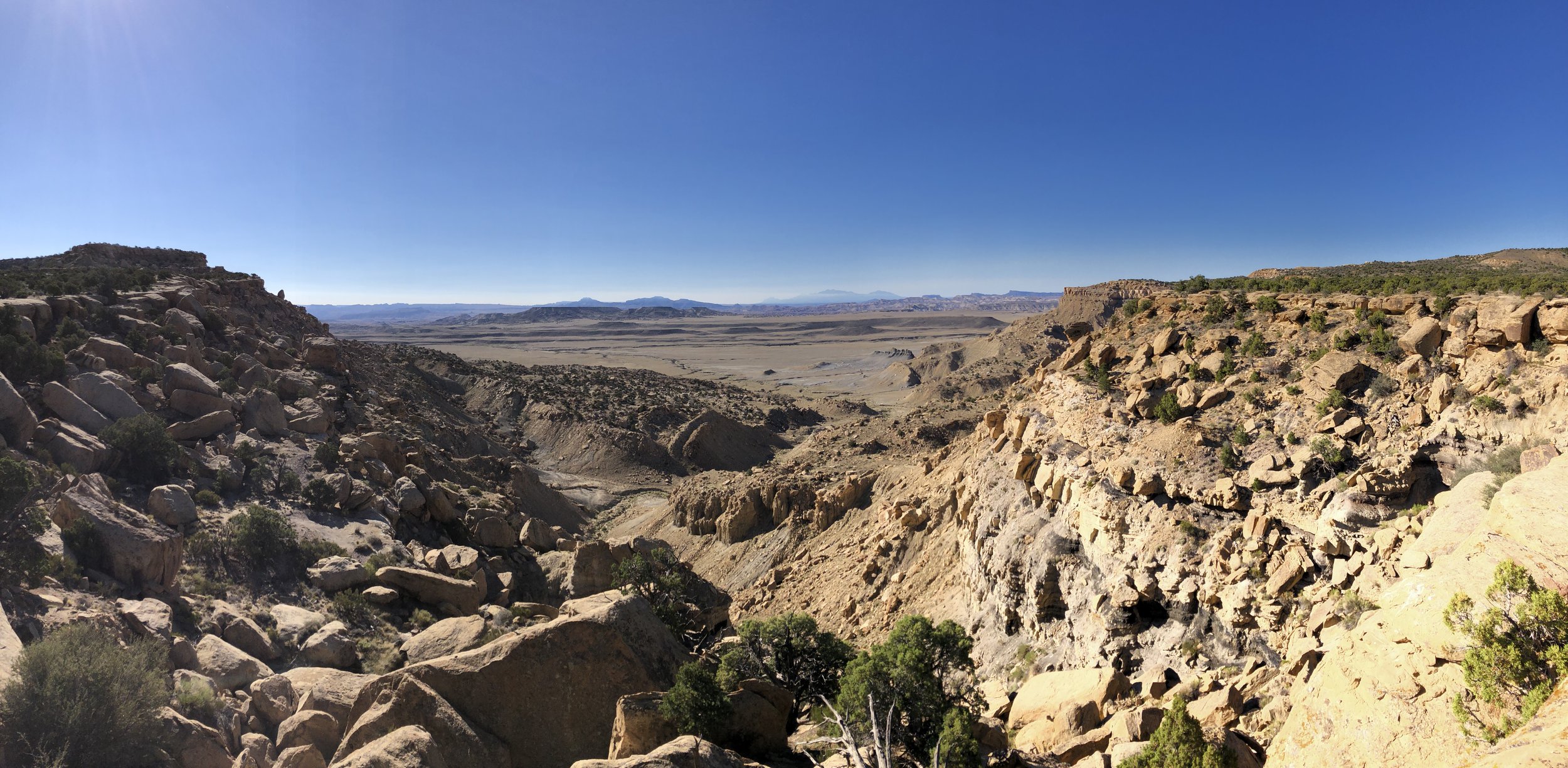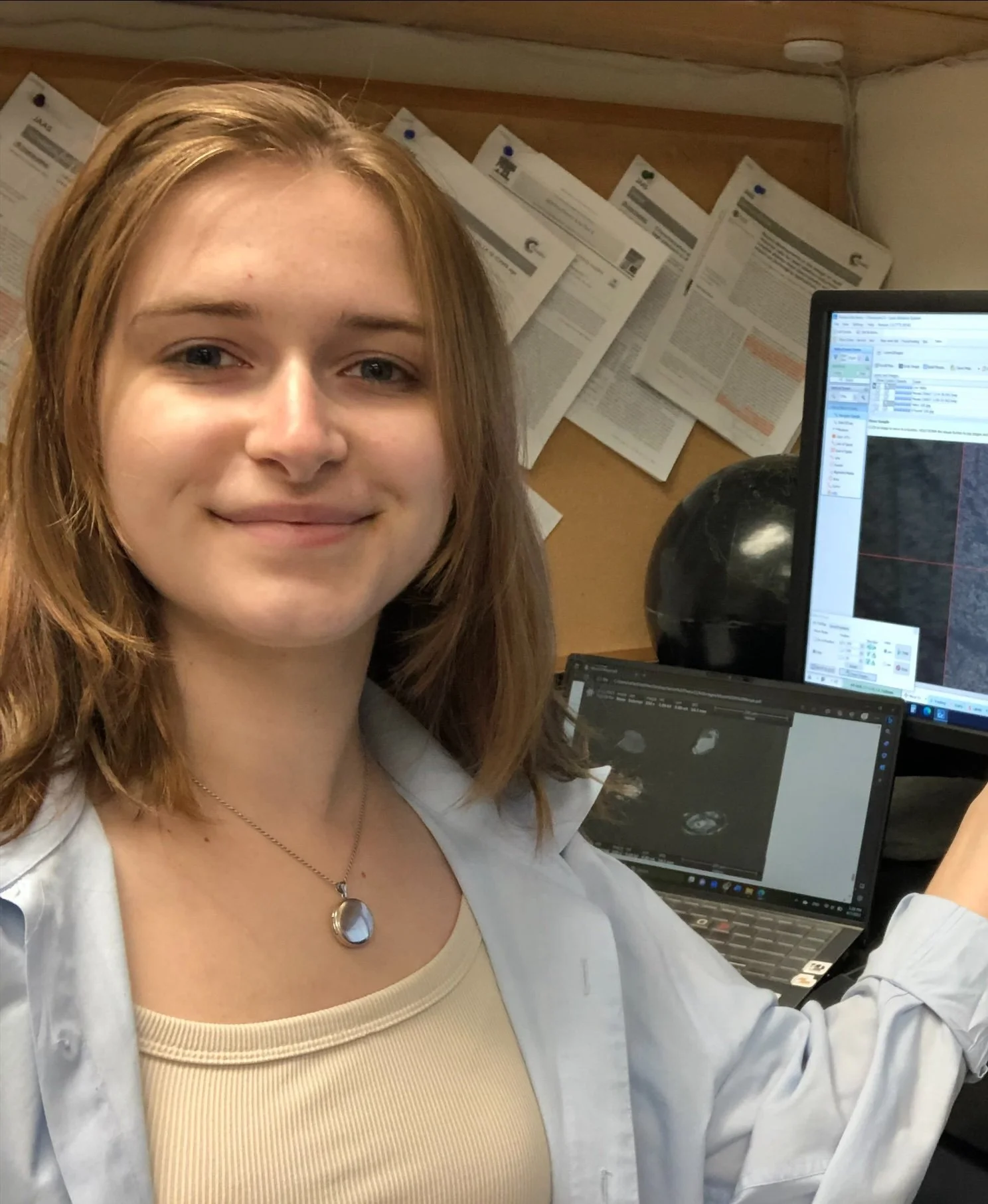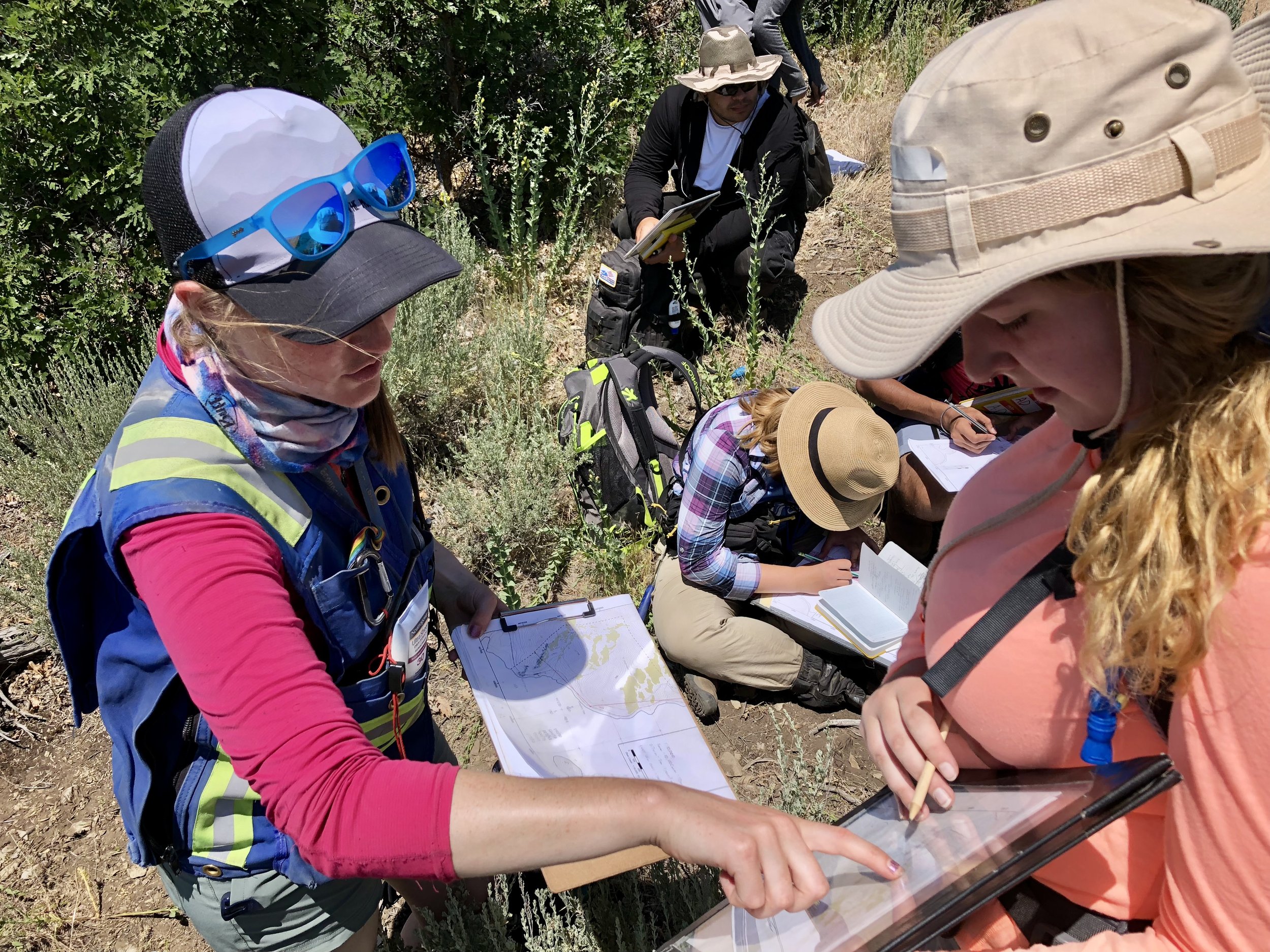
Course Information
Important Dates, Instructors, & General Flow of Course
2025 Important Dates
Deposit Deadline: 3/1/2025
Health & Safety Forms Due: 3/1/2025
Camp checkin begins: Sunday, 6/08/25, 2 pm
Instruction Begins: Sunday, 6/08/2025, 6 PM
Camp checkout begins: Wednesday, 7/16/2025, 4:30 pm in Carlin NV. Camp will then drive to Salt Lake City for the evening. Consortium departments will book hotels near the airport. Those flying out should plan departures on Thursday 7/17/2025. Those traveling with department vehicles back to home institutions will depart that same morning. Non-consortium students who plan to fly out of SLC will be found a space in one of the consortium university rooms.
Curriculum
The curriculum is designed to provide field experiences in a wide variety of geological environments. You can make the most of this opportunity through hard work, cooperating effectively within your student working groups, and interacting with the faculty. In general terms the curriculum is as follows (the schedule and particular projects may change from year to year):
Weekly Themes
Week 1: Introduction to regional Mesozoic & Cenozoic stratigraphy of the Wasatch range. Sedimentary rock and unit descriptions, Introduction to geologic mapping, Measuring stratigraphic sections and sequence stratigraphy.
Week 2: Mapping of faults and folds in sedimentary rock units. Remote mapping and field checking of quaternary glacial deposits. Introduction to the Proterozoic through Paleozoic stratigraphic section.
Week 3: Mapping of faults and folds. Geologic mapping of sedimentary and volcanic units with shallow intrusive igneous bodies.
Week 4: Geologic mapping of sedimentary and volcanic volcanic units with shallow intrusive igneous bodies and associated thermally metamorphosed units.
Week 5: Wasatch Igneous Belt. Geologic mapping of sedimentary and volcanic volcanic units with shallow intrusive igneous bodies and associated thermally metamorphosed units.
Week 6: Economic geology in Carlin, NV and return home
Evaluation
Grades for all course-related deliverables (e.g., rock descriptions, geologic maps and cross sections, stratigraphic columns, short written reports, and final projects) are determined jointly by the faculty. To help highlight areas for improvement while avoiding a counterproductive preoccupation with grades, scores for individual project elements are loosely divided according to rubrics into three bins: good, average, poor. These scores reflect the viability of your interpretations; the effort, neatness, clarity, accuracy, pertinence, and conciseness of your work; your industry and attitude in the field; and the intangible subjective impressions of your instructors. Grades are not helped by sloppiness in work, spelling, grammar, attitude, and poor "field etiquette". Deadlines are strictly enforced. Early projects are designed as "learning" exercises, generally involve group work, and are graded accordingly. Later projects – including opportunities for individual work – carry additional weight.
Instructors
-

-

-

-
-

Dr. Sarah Austin
Instructor University of Illinois Email | Web
-

Dr. Saad Haq
Instructor Purdue University Email | Web
-

-

Alexandra Macho
Guest Instructor
Rio Tinto
Web -

Rachel Miller
Graduate Instructor Mental Health First Aid Certified Mental Health Support Staff Purdue University
-

Kate Akins
Graduate Instructor University of Wisconsin
-

-

Daily Schedule (Monday - Saturday)
7:30 AM: Breakfast
8:15 AM: Group departs for the day’s field activity
5:30 PM: Return to UU housing
6:00 PM: Dinner
7:00 PM: Meetings, evening lectures, study hours with faculty office hours
10:00 PM: Projects due (if applicable)
Free time: You will be expected to work on your projects on most evenings. Generally, you will have some free time on Sundays and some Saturdays to relax and recuperate.
Meetings: Mandatory evening or morning meetings will be scheduled as necessary -- generally in advance of each new project. Announcements for these meetings and other important information will be posted on the course Canvas site - be sure to check it regularly.
Overnight Trips
Vicinity of Carlin & Elko, Nevada: In the last week of camp, we spend 3 nights near Carlin, Nevada, as guests of Nevada Gold Mines (a cooperative venture between Newmont and Barrick), where we will learn about the economic geology of the Carlin-Trend gold deposits and receive an unparalleled, first-hand look at mining operations under the direction of experienced NGM geologists.


